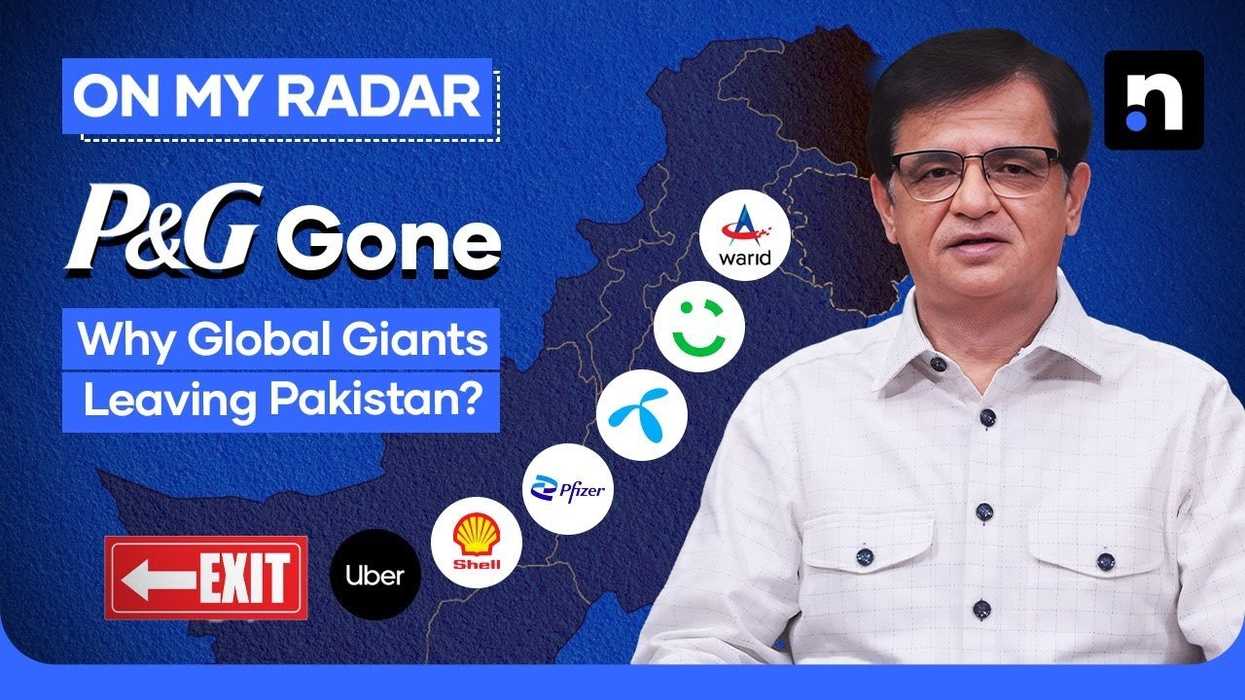Procter & Gamble departure underscores Pakistan's deepening investment crisis
Kamran Khan reports dozens of multinationals have departed Pakistan over the past decade
News Desk
The News Desk provides timely and factual coverage of national and international events, with an emphasis on accuracy and clarity.
P&G brands like Pampers and Head & Shoulders will become imports
Corporate taxes reach 49% while foreign investment fell to USD 1.8 billion
Shell, Telenor, Uber and major pharmaceutical companies also exited
American consumer goods giant Procter & Gamble will cease manufacturing operations in Pakistan and shift to a distribution-only model, marking the latest departure in a years-long exodus of multinational corporations from the South Asian nation of 250 million people grappling with economic instability.
Kamran Khan, in Thursday's episode of "On My Radar," reports that P&G brands including Pampers diapers, Head & Shoulders shampoo, Vicks, Ariel detergent, and Safeguard soap will soon become imported products as the company outsources its local business operations. P&G's subsidiary Gillette Pakistan has already notified the Pakistan Stock Exchange of plans to close its business.
The announcement underscores deepening concerns about Pakistan's investment climate, where foreign direct investment has stagnated over the past four years despite government efforts to attract capital. Pakistan received USD 2.45 billion in FDI last year, which fell to just USD 1.8 billion after accounting for foreign outflows.
Decade of departures
Over the past decade, dozens of multinational companies have either completely wound up operations, sold their Pakistani assets, or transferred ownership to local firms across multiple sectors.
The pharmaceutical industry has been especially hard hit, with the number of multinational pharma companies operating in Pakistan dropping from 40 to just 17. American drug maker Eli Lilly ceased local operations in 2022, while German pharmaceutical giant Bayer transferred its assets to a local company in June 2023. Pfizer, Johnson & Johnson, Merck, and French company Sanofi have also exited.
In energy, Royal Dutch Shell sold its decades-old Pakistani operations to Saudi Arabia's Wafi Energy, while France's Total Energies handed over its 50% stake in Total PARCO to Gunvor. The telecommunications sector saw Norway's Telenor decide to sell its Pakistani business, while ride-hailing services Uber and Careem ended operations in 2024 and 2025.
Profit repatriation crisis
A 16-month restriction on profit repatriation during Prime Minister Shehbaz Sharif's previous government proved particularly damaging, according to Khan. When restrictions were lifted, the rupee had depreciated significantly, creating what multinationals viewed as a "red flag" that neither investment nor profits were secure.
Multiple factors are driving the corporate exodus: taxes reaching 49% including super tax, currency volatility, inflation-driven declines in consumer purchasing power, inconsistent import policies, foreign exchange shortages, and sudden policy changes.
While some companies' decisions may reflect global corporate restructuring, the sustained pattern of exits raises questions about Pakistan's ability to maintain investor confidence despite the country's large consumer market.








Comments
See what people are discussing